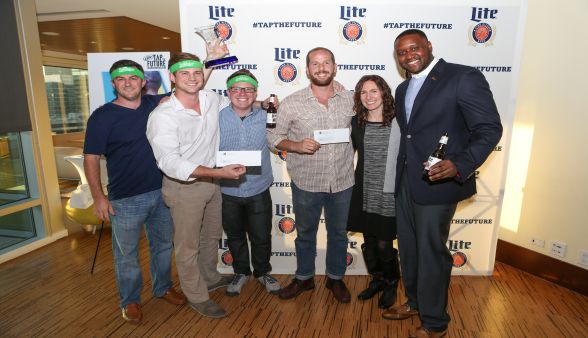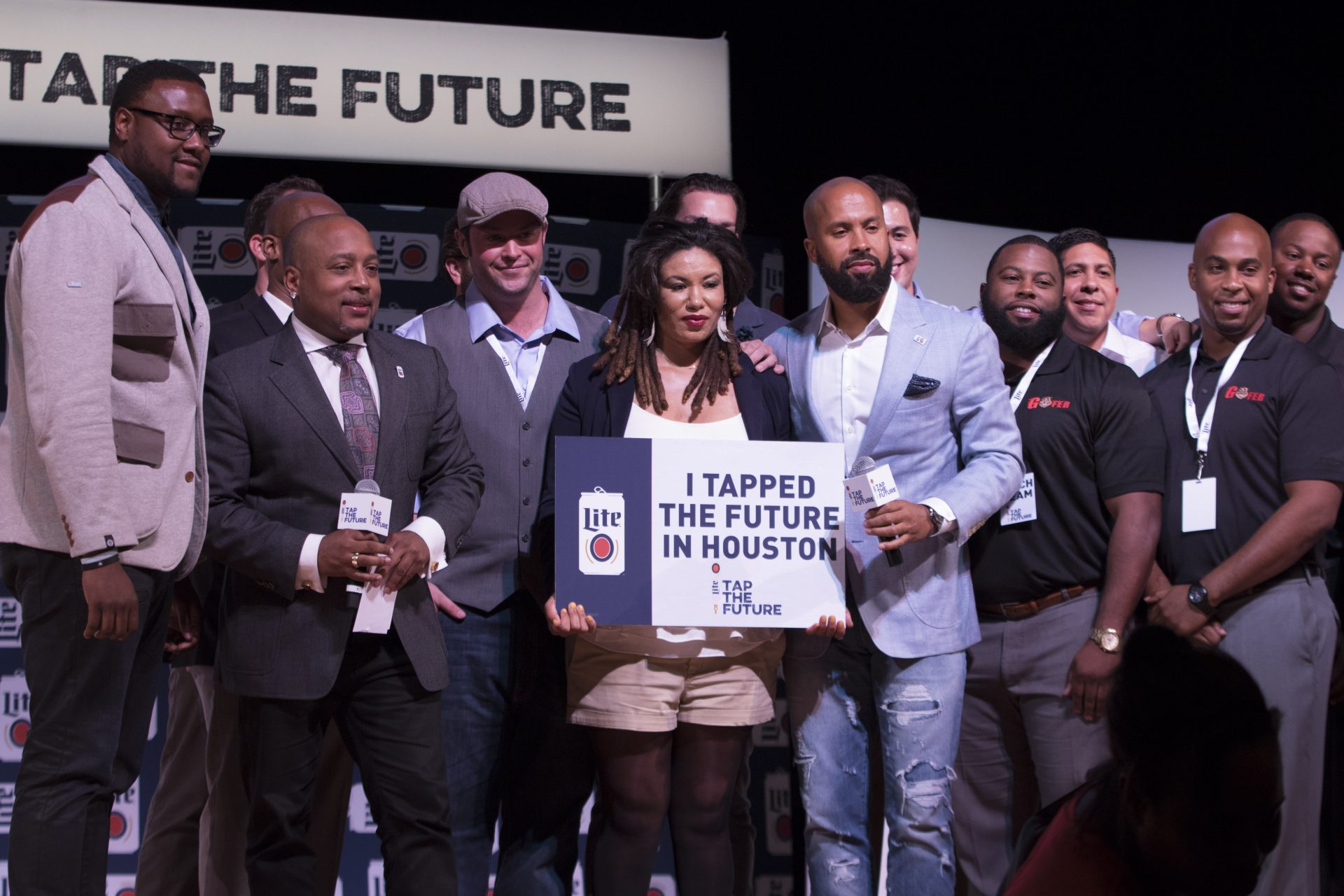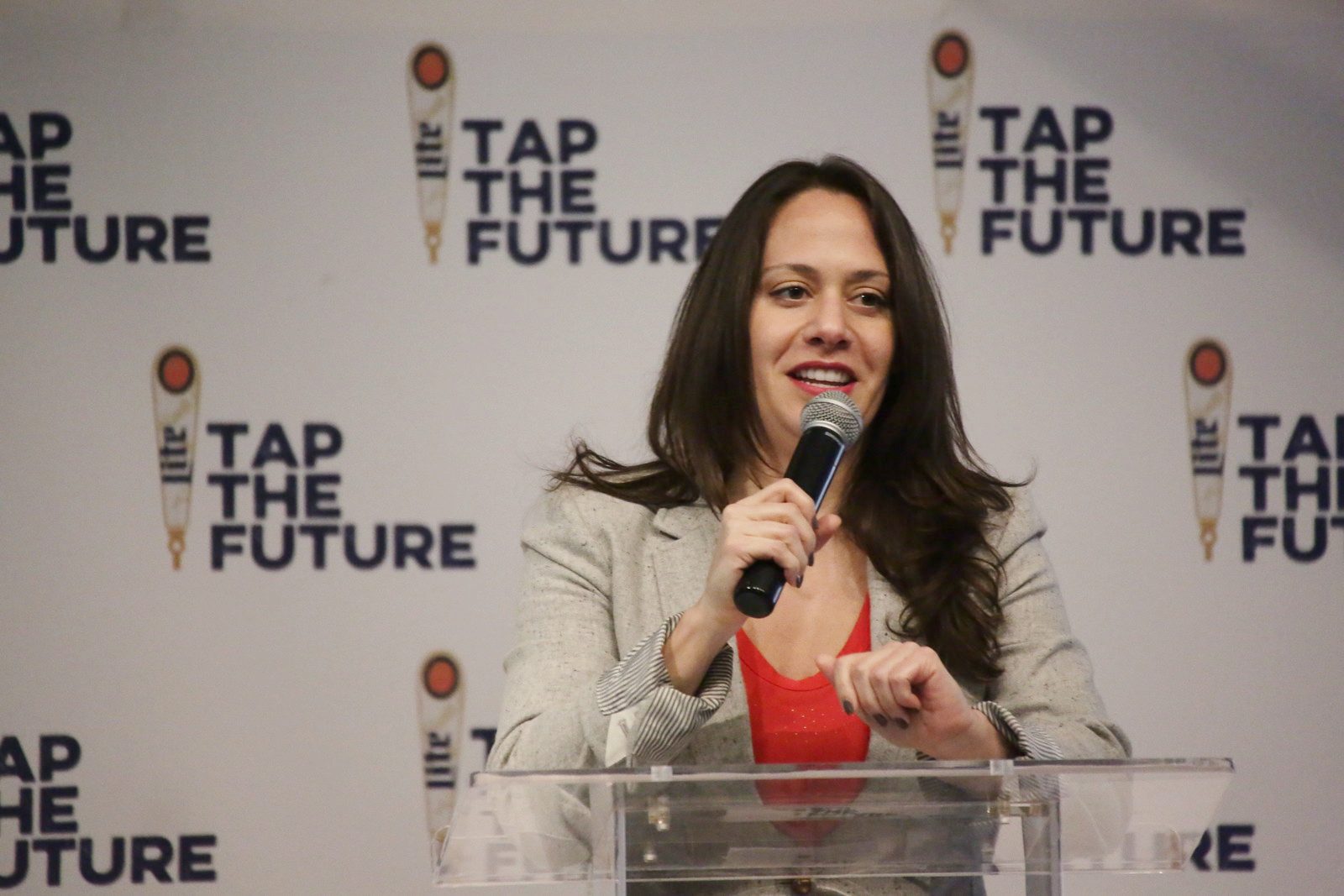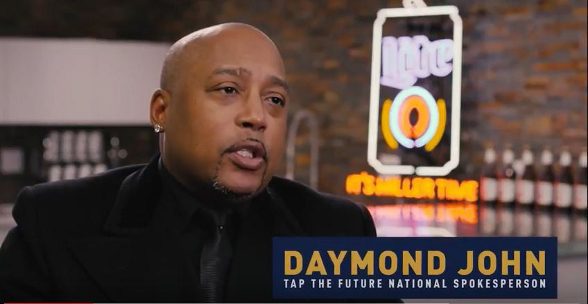
Bucketfeet is artist designed shoewear. Co-founded by Aaron Firestein and Raaja Nemani, BucketFeet is a place where talented artists can be discovered and customers can sport custom-designed shoes.
Since launching in 2011, BucketFeet now works with over 100 artists from 30 countries and is sold in 10 countries around the world, online, and in over 100 retail locations.
Live event judges for the Miller Lite Tap the Future business competition, Firestein and Nemani have quite a unique story.
Here, Nemani shares their inspirational story.
What inspired you to start a new business? How did the idea for your business come about?
Aaron and I launched BucketFeet after meeting while volunteering in Argentina in 2008 – he lived there and I was backpacking for a year. Aaron used to draw on canvas shoes and create custom sneakers that he sold to people all over the world. I bought a pair and those were the shoes I wore as I backpacked around the world. There were two big inspirations for the brand. 1) The connections I made because people would stop me on the street and ask about my shoes. People thought it was amazing that an artist (Aaron) in Argentina created the shoes I was wearing. 2) While working as a photographer, Aaron got to meet many talented artists. It was ridiculous to us that he had to sometimes travel to dangerous favelas just to see the work of amazing artists. We wanted to expose talented artists, because art is universal and art can connect people. Based on our life stories from 2008-2010 we decided to create brand that finds a different artist to design every style of shoe we create. Talented artists get global exposure, and customers get original shoes that stand out and tell a story.
What motivates you as an entrepreneur?
The idea that success is on our shoulders and failure is too. We like being in control of our destiny and we get to have that possibility as entrepreneurs. No matter what, looking back we get to say we created something that never before existed in the world, and that’s a pretty amazing feeling. We can’t wait to see all the great ideas that will come about from the Miller Lite Tap the Future business plan competition.
What team members do you recommend that entrepreneurs have on their Mastermind Team?
It’s important to build a team of different skill-sets, you don’t want a bunch of people that think exactly the same and have the same perspective on everything. You also don’t want yes-men, you want people that will challenge you to get better and grow. On our team, I’m more the numbers and strategy guy, while Aaron is the design and artist guy. Both are critical to our success, but by keep our responsibilities separate we are able to do a lot more and don’t step on each other’s toes. Think about the most critical things you need to accomplish at the early stages of your business, focus on those, ignore everything else, and build your team with that coherent vision in mind. You want to do everything all at once, but usually it just creates distractions.
What should a good business plan accomplish? What components should it contain in order to be effective?
A good business plan should serve as a guide or checklist as you set off to create and grow your business. You should know your product/service, customer, positioning, mission, market, team, capital requirements and sales strategy. Most importantly, we believe a business plan should serve more as a framework than anything else. At the end of the day, you need to be able to react / adapt to uncertainty quickly and efficiently.
What are the top three questions to ask when determining your readiness for an entrepreneurial venture?
Are we willing to work harder than we have ever before in our life or ever likely will? Would we use this product or service? Why do people need or want this?
What would you say are the top three skills and/or characteristics needed to be a successful entrepreneur?
Problem solving skills. Relentless hunger. Vision.
How do you formulate and perfect an elevator pitch?
You should be able to tell someone in 30 seconds what you do and why it’s great. Find your key message and take out the fluff.
What should an aspiring entrepreneur know and do in preparation for a live pitch of a business concept?
At the very least the aspiring person should know their business inside and out better than anyone else. They should practice their pitch to friends, advisors, and mentors. Lastly, the entrepreneurs should be themselves. The person is almost as important (if not more important) than the idea itself, and many times the person is who an investor wants to invest in. We expect for Miller Lite Tap the Future contestants to give us an understanding of their personality and work ethic during their pitch as well.
Please give us three things to consider when entering into a business partnership.
The most important thing to do upfront is to have a very clear understanding of what everyone’s role is and what their ownership is. It’s fine to start businesses with friends or acquaintances, but if things start to go wrong (or really well for that matter), things can get dicey if you haven’t had the hard, uncomfortable conversations upfront. It’s also important to not take anything personal. In business, everyone should be doing what’s best for the business and not have to worry about hurting someone’s feelings. Lastly, but most importantly, communication and honesty are key to a healthy partnership. Just don’t forget that there’s nothing like taking the time to enjoy success with your friends after a long day of work. Make time to relax with some cold ones.
What have some of your missteps been, and what have you learned from them?
Luckily we haven’t had any major missteps, only little things. As cliché as it is to say, it’s true to remember that everyone makes mistakes, but it’s what you learn from them. Don’t make the same mistake twice, and don’t forget you’ve never made your last mistake. Keep your eye on the prize and keep pushing forward.
As judges, what advice would you give to potential entrants to make their concept or pitch stand out?
Get customer feedback. If you have a product already try to sell it. If you have a service have people use it. Go the extra mile, show excitement, and show your passion.
What books or other works have inspired you the most?
The Alchemist is an inspiring book to me. Recently, the June 24 Malcolm Gladwell article in the New Yorker titled “The Gift of Doubt” is great for any entrepreneur to read.
Who do you see as mentors or examples to follow in the entrepreneurial space?
I look at Brian Spaly. He’s been a great mentor to me. He’s the co-founder of Bonobos and CEO of TrunkClub. He is my toughest critic probably, but that motivates and drives me and I think he knows that. That said, he was also our first major investor and super-smart, super-hardworking, and very willing to help, which are all qualities I admire.
How are your friends and family involved in your business?
My friend Aaron is my co-founder! My family has been nothing but supportive. Starting a company has been the most stressful thing I have ever done. There is no need to have people in your life that give you even more stress. Surround yourself with friends and family that build you up when you feel like everything is falling down (which happens to every entrepreneur!).
For more information on Miller Lite Tap the Future business competition, please visit mltapthefuture.com.














